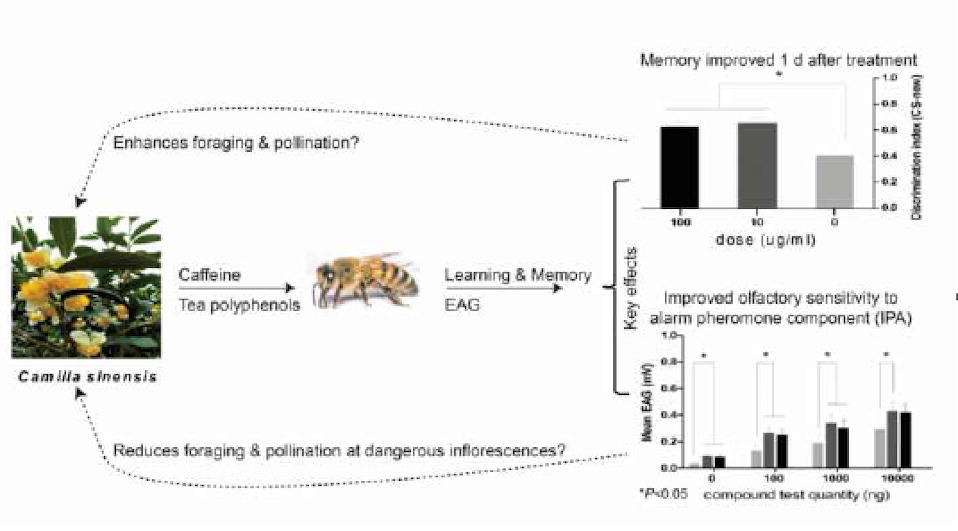In China, bees are potentially exposed to caffeine and tea polyphenols (TP) in the nectar of tea (Camilla sinensis), a widely cultivated crop. Although C. sinensis co-evolved with Asian honey bee species, such as A. cerana, the introduced European species (A. mellifera) is now widespread in China where it is used for pollination and honey production.
In a study published in Journal of Insect Physiology, researchers from Xishuangbanna Tropical Botanical Garden (XTBG) tested if TP can alter A. mellifera foraging preferences and if TP and caffeine can alter the introduced European species learning and memory and antennal responsiveness to odors, measured via electroantennograms (EAG). They also tested whether TP could increase honey bee antennal responsiveness to alarm pheromone components.
The researchers provide the first evidence that bees prefer nectar with tea polyphenols (TP) over control nectar at natural and elevated TP concentrations. In addition, TP can affect bee olfactory cognitive ability and olfactory sensitivity.
They then found that both caffeine and TP significantly improved memory retention. Honey bee memory improved overall when bees fed more recently on caffeine and TP (within 2 hours as compared to 1 day before the first learning trial). TP and caffeine improved memory retention, and caffeine weakly improved learning. The tea plant may therefore benefit from these pollinator effects.
Moreover, TP generally elevated electroantennograms (EAG) responsiveness to alarm pheromone odors.
“Our results demonstrate that not only caffeine, but other secondary plant compounds, can attract pollinators and influence their learning and memory,” said Prof. TAN Ken, principal investigator of the study.
Contact
TAN Ken Ph.D Principal Investigator
Key Laboratory of Tropical Forest Ecology, Xishuangbanna Tropical Botanical Garden, Chinese Academy of Sciences, Mengla, Yunnan 666303, China
E-mail: kentan@xtbg.ac.cn

Floral tea polyphenols can improve honey bee memory retention and olfactory sensitivity. (Image by GONG Zhiwen)

